[ad_1]
Kumar’s journey, marked by early days tending to family fields, took an unexpected turn at the tender age of six when his hand became ensnared in a fodder-cutting machine, leading to the amputation of his arm.Despite these challenges, Kumar went on to etch his name in the history books of Indian sports.
At the recent 4th Asian Para Games, Nishad Kumar became a beacon of triumph for India, claiming the gold medal in the Men’s High Jump T47 category—a classification for athletes with a unilateral upper limb impairment. Soaring over the bar at 2.02m, he not only secured victory but also set a record in the Asian Para Games.
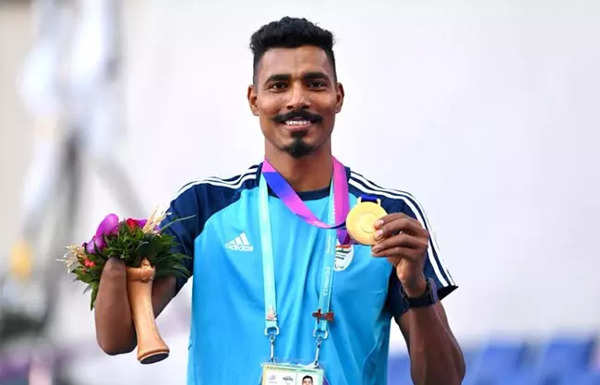
This remarkable laurel adds to Kumar’s legacy, which began with a silver at the 2009 National School Games, before reaching a new height when he won a silver at the Tokyo Paralympics.
In an exclusive conversation with TimesofIndia.com, Nishad Kumar shares insights into his extraordinary journey, providing a glimpse into the resilience, challenges, and triumphs beyond adversities. Excerpts:
How does it feel to add an Asian Para Games gold medal after winning silver in the Tokyo Paralympics?
It was an extremely pleasant moment for me because this was the first time I won a gold medal at the Asian Para Games. Before this, I won the silver medal in the Tokyo Paralympics. And at that time, we had a good level of preparation. You know moments are different in the Olympics. The whole world participates in that, and winning the silver medal was such a huge achievement for me because that was my first Paralympics and I won it on my first attempt.
It was my dream to win the gold medal at the Asian Para Games because when the Asiad happened in 2018, I didn’t have para classification done. So I debuted as a para athlete in 2018. I had been competing in the able-body category before that.
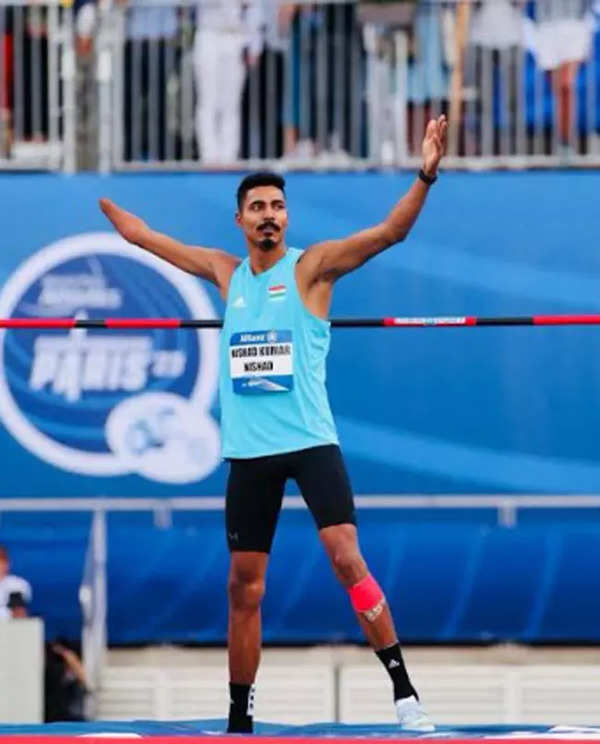
Tell us about the Asian Para Games record you broke in Hangzhou.
During the competition when I got to know that the jumpers in 1.94m and 1.97m had been eliminated and I was the only one left, I started getting that energy and feeling that the gold medal was mine. I didn’t think about the record at that time. You know that records are meant to be broken. The feeling of winning the medal gave me a different level of satisfaction.
I did not know (after completing the jump) that I had broken the record. Before the event, the officials let us know about the Asian records, Asian Games records, and World records. And when all the players got knocked out, I was the only one left, she informed me once again about the records. I was so happy at the moment when I broke the record. I made my first attempt at 1.97m and broke the Game record of 2.01m with a jump of 2.02m. The Asian record of 2.09m was also mine. When I told her, “I hold the Asian record”, she looked at me in shock and said, “This is also your record?” I said, “Yes!”
Tell us about the physical and mental preparations for the Asian Para Games?
We always do physical training before a competition. I started training for the Asian Games in December last year. And we had the World Championships two months before that. When we were doing physical training at that time, we were also training on our mental side where we try to visualise the competition, how the competition would be, how the audience would be, how the competitors would be, and how I need to perform on the stage.
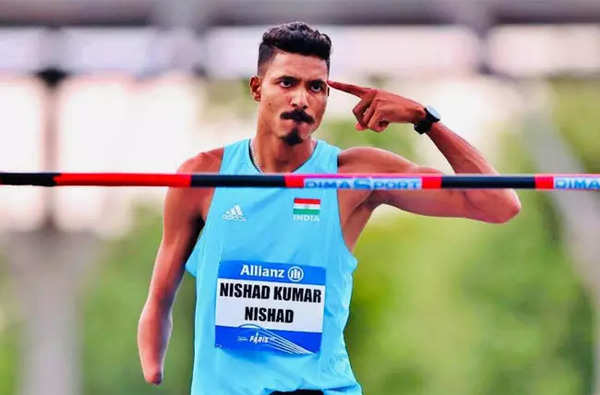
Just as we have our physical coach, we have a mental trainer who always helps us prepare for a competition mentally — how to handle any situation emotionally, how to keep us away from feeling nervous and how to always up my confidence.
So, before the jump, I was extremely relaxed. I was not nervous at all. I was not nervous at the Olympics, and I was fully confident back then because I was mentally prepared to play in such a huge competition. It was my first time, and I had the audience backing me from behind. We also did our training on how to keep ourselves calm and not let our hearts beat faster.
What are the benefits of being an athlete under Target Olympic Podium Scheme (TOPS)?
I am a TOPS athlete. I was in the US, doing my training before the World Championships in February. When I am in India, I train in SAI Bengaluru. I train in a proper manner in the morning and evening, two times a day. We followed the diet after discussing it with the nutritionist. If I am not recovering well after the training, the nutritionist suggests the appropriate diet.
I have been under TOPS since 2019. I am also getting support from SAI (Sports Authority of India). As a TOPS athlete, I can train anywhere at the national and international levels. We get a physio, doctor, nutritionist, mental trainer, and physical trainer. When I am in Bengaluru, diet is not an issue. These are the requirements of an elite athlete.
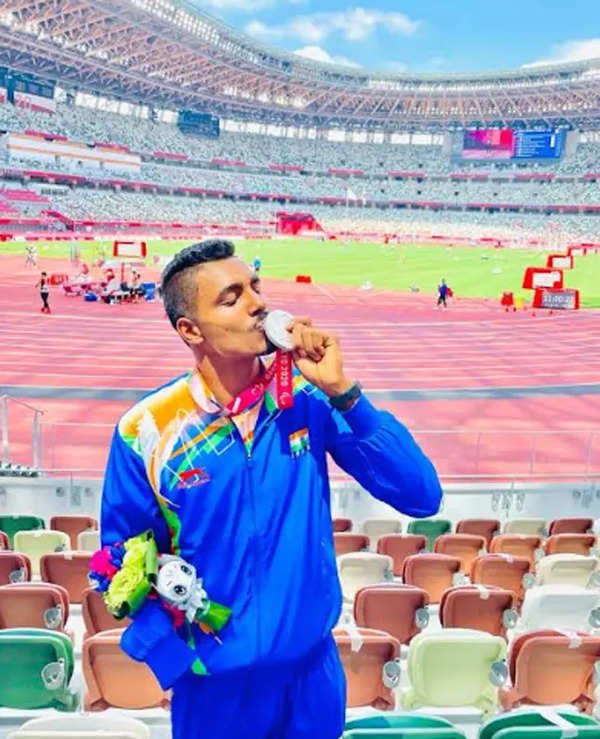
How does it feel to share the podium with a fellow Indian athlete, Rampal, who won a silver medal in the same event?
Rampal is my senior. The first time I played with him was back in 2018. In 2017, I had to come to Panchkula from Himachal Pradesh. I played the nationals in 2018 where I won the silver medal. At that time, Ram bhai won gold and I won silver. We had the podium finish together then, but he was the first and I was second. This time, just the positions changed. That said, he has always delivered good performances, and the level of consistency has been good. He is maintaining that 1.90m-1.95m+ jumps in every competition.
What are the factors that constantly drive you?
Waking up every morning and then training gives me another level of motivation. Training every morning and evening, keeping patience, and doing all the hard work, these things are extremely important. Keeping patience is fundamental because you have to wait for your time.
What do you do outside sports?
When I return home, I will go back to farming with my family, maybe help them a bit with “khad” (manure). When I am in training, I like to listen to music. I love listening to music a lot in training as well as when I am in a room. I love Punjabi music.
Are you satisfied with the support you’ve been receiving from the government and sports authorities?
Over the last few years, there have been several changes in sports. Athletes have started getting more support. The Khelo India Games and TOPS have become pivotal. If we look at the record from 2014 and 2018, we were lacking in the medal tally. But if we look at the current results, it is almost double the medals. In recent times, the competition has increased. Athletes have also worked extremely hard with the government supporting them. And that is a good sign for us.
What message do you have for aspiring para-athletes?
I have one message for them. Try to do anything you do wholeheartedly and with complete sincerity, have patience for the goal that you want to achieve, and do hard work. If you are patient, you will be successful. Please don’t take any short-cut route, do the hard work.
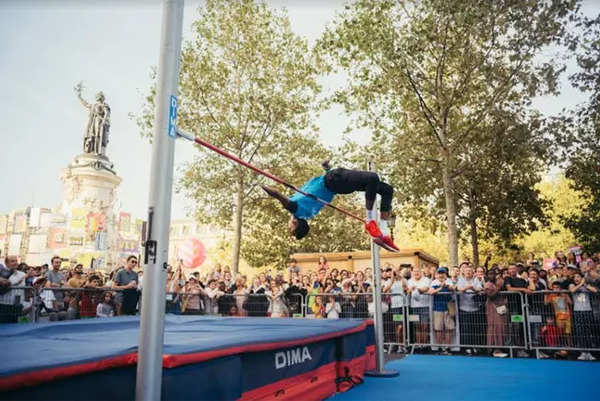
Looking ahead, what are your expectations for upcoming competitions, particularly Paralympics 2024?
This year, I have nothing left as the season is complete. Next year in May, we have the World Championships in Japan. And then, we have the Paralympics in Paris. So it is going to be a huge year for us. But for now, let’s celebrate this medal. It will be all good when I start training for the Paralympics. Nobody is interested in playing for the sake of participation. Every player wants to represent the country and win gold. Having won the gold medal, I have felt that the weight of gold is quite different. I will do my best in training and if God wants, I will win it for sure.
Watch Winning gold at Asian Para Games was special: Nishad Kumar
[ad_2]
Source link





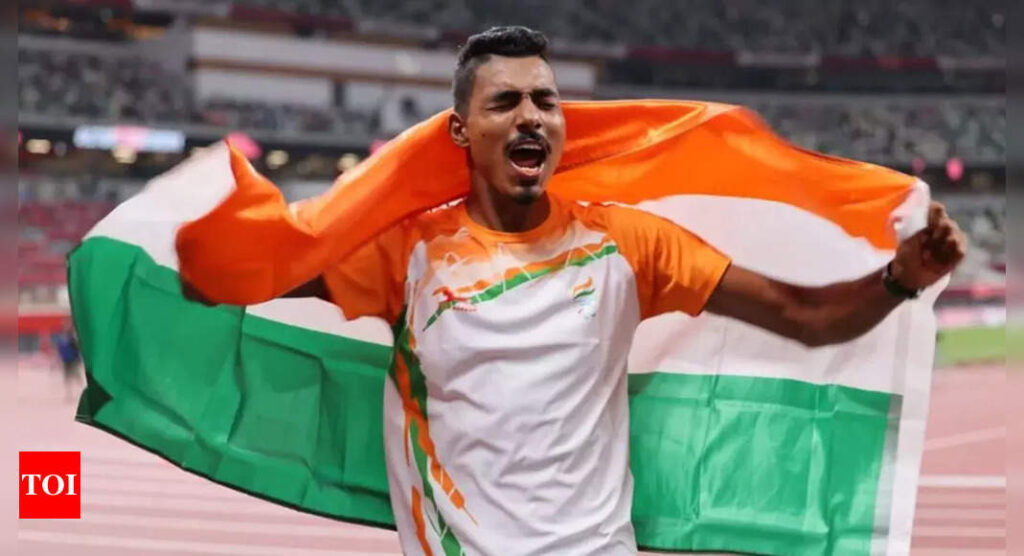




More Stories
Australia exposed India’s little chinks in World Cup final: Sanjay Manjrekar | Cricket News
Rahul Dravid, BCCI engage in discussion but board inclined towards new coach | Cricket News
IPL 2024: Delhi Capitals retain Prithvi Shaw | Cricket News